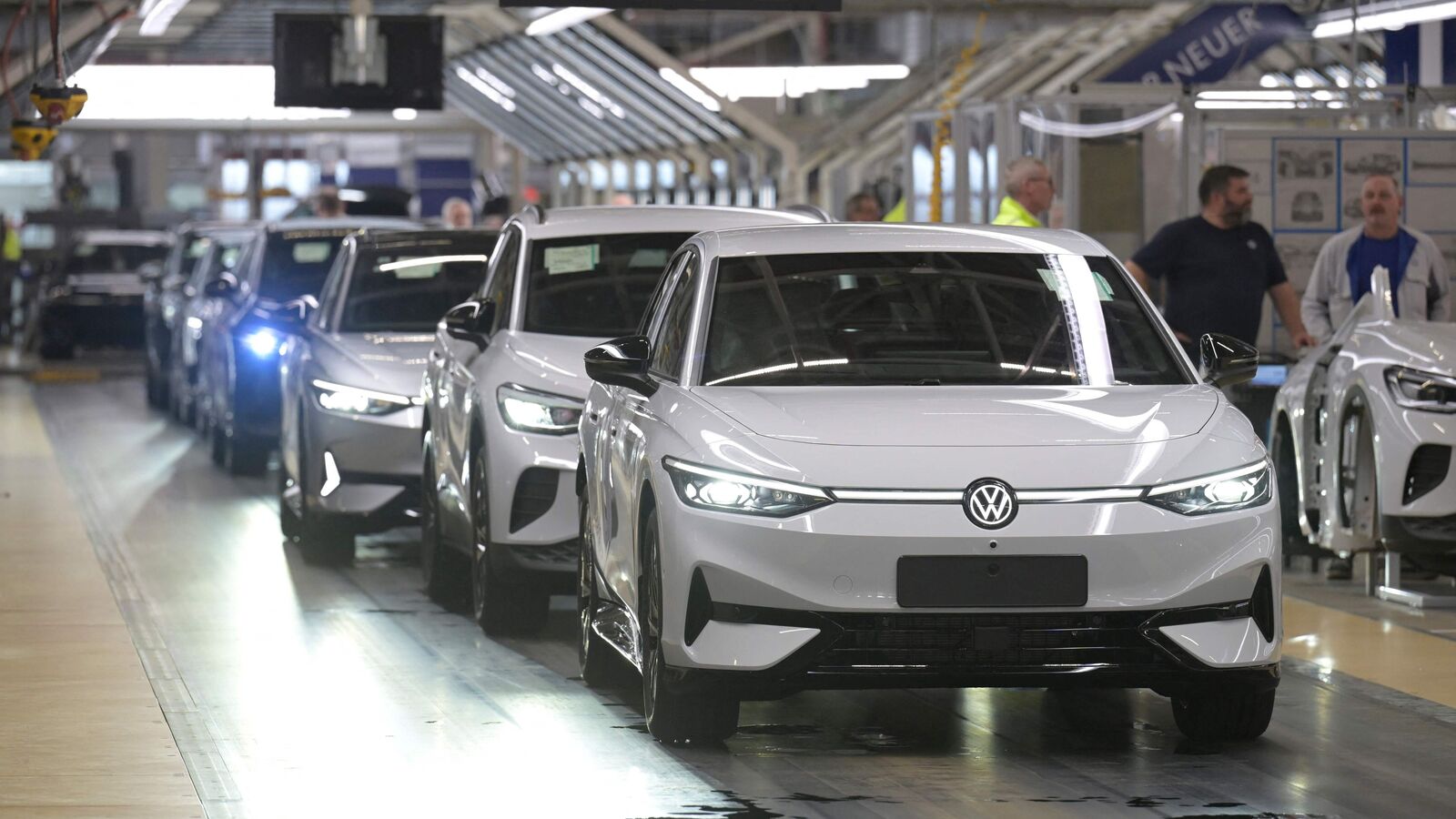Germany has vowed not to back down after former US President Donald Trump announced a 25% tariff on imported cars and car parts, a move that has sparked strong reactions from global economies.
Germany’s Economy Minister Robert Habeck said the European Union must “respond firmly” to the tariffs, warning that the continent will not give in to US pressure. Other countries, including France, Canada, and China, have also condemned the decision, with some pledging countermeasures in response.
Trump’s Tariff Move Sparks Global Tensions
Trump’s tariffs, set to take effect on April 2, will impose a 25% tax on all foreign-made vehicles entering the United States. Additional levies on car parts are expected to follow in May, further complicating supply chains for international automakers.
A row of luxury German cars, including BMW, Mercedes-Benz, and Audi, parked outside a dealership, symbolizing the impact of Trump’s car tariffs on European automakers.

Speaking on Wednesday, Trump defended the measure, arguing that it would boost US manufacturing and encourage automakers to relocate production to American soil.
“If a car is made in the United States, there will be absolutely no tariff,” Trump said, adding that foreign automakers had taken advantage of American workers for “too long.”
Germany and EU Push Back
Germany, home to some of the world’s largest automakers—including BMW, Mercedes-Benz, and Volkswagen—has strongly opposed the tariffs.
In a statement on Thursday, Habeck said Europe must resist what he called an “economic attack” on the global auto industry.
“It must be clear that we will not give in to the US,” Habeck said. “We need to show strength and self-confidence.”
French Finance Minister Eric Lombard echoed Habeck’s stance, stating that Europe’s “only solution” was to impose retaliatory tariffs on American products.
“We are in a situation where we are being targeted,” Lombard said. “Either we accept it, in which case this will never stop, or we respond.”

Stock Markets and Industry React
Following the tariff announcement, shares in major European automakers fell sharply, with German brands Porsche, BMW, and Mercedes-Benz seeing steep declines. French car manufacturer Stellantis, the parent company of Jeep, Peugeot, and Fiat, also suffered stock losses.
Industry experts warn that the new tariffs could significantly increase vehicle prices in the US. Analysts at the Anderson Economic Group estimate that tariffs on car parts alone could raise costs by $4,000 to $10,000 per vehicle, depending on the model.
Canada, China, and Japan Condemn the Move
Beyond Europe, other major economies have also criticized the decision.
Canadian Prime Minister Mark Carney described the tariffs as a “direct attack” on his country’s auto industry. Canada is one of the largest suppliers of vehicles and car parts to the US, and the new tariffs are expected to have major economic repercussions.
China, meanwhile, has accused Washington of violating World Trade Organization (WTO) rules. A spokesperson for the Chinese Foreign Ministry warned that there are “no winners in a trade war.”
Japan has also reacted with concern, calling the tariffs “extremely regrettable.” A Japanese government spokesperson stated that officials had formally requested an exemption from the policy.

Hyundai Invests in the US Amid Trade Uncertainty
While many global automakers have condemned the move, South Korea’s Hyundai has announced a $21 billion investment in the US, including the construction of a new steel plant in Louisiana.
Trump hailed the move as proof that “tariffs work”, suggesting that other automakers should follow Hyundai’s lead.
What Comes Next?
As the April 2 deadline approaches, Europe and other nations are considering their next steps. While Germany and France have signaled their readiness to impose retaliatory tariffs, it remains unclear whether negotiations could ease tensions before the trade war escalates further.
For now, the global auto industry braces for impact, with automakers, governments, and consumers all watching closely to see how the situation unfolds.
Ready to strengthen your business continuity with insights and tools? Visit PGN Business Insider for expert analysis and the latest business trends















